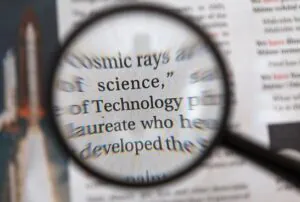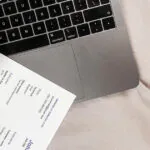
Have You Got What It Takes to Be a Proofreader?
People often ask us whether you need a qualification to be a proofreader. The short answer is “no”. Anyone can give proofreading a try! However, there are some skills you need:
- Strong English language skills for refining written documents
- Attention to detail and concentration
- The ability to communicate clearly with clients
- Organizational skills and self-motivation
- Digital and computing skills, especially with Microsoft Word
- The ability to follow a client’s brief and a style sheet
And if you have these raw skills, Knowadays can help you put them to professional use. Find out more about what you need for a career in proofreading below!
1. Language Skills
Language and writing skills are key for a proofreader or copy editor. But this doesn’t mean you need an English degree! The only things you truly need to proofread are:
- A strong understanding of English spelling, grammar, and punctuation
- A decent vocabulary and precision over word choice
- A sense of the difference between formal and informal English
- Knowledge of various writing styles and document types
- The ability to express any thought clearly and concisely
Studying English formally can help with these. But you can also develop excellent language skills from reading, writing, and helping friends or colleagues to proofread their work.
2. Attention to Detail
A good proofreader is one who notices the tiny typos or formatting errors that everyone else missed. As such, attention to detail is vital. Likewise, you need to be good at concentrating to proofread. After all, it’s easy to let your mind wander if you’re reading through hundreds of pages of dry text. But that’s also how you miss errors!

Magnifying glass only required for very small text.
So, to be a proofreader, you need to be able to stay focused throughout the editing process.
3. Communication
We’ve separated communication skills from language skills for a reason: being able to write well is one thing, but being able to communicate clearly with your client is another.
And communication is vital for a proofreader because:
- You need to agree the services you’re offering with your clients
- You will need to provide feedback on issues in documents
- It helps you to maintain a professional tone with clients at all times
And don’t forget some clients may not speak English as a first language, so clarity is vital!
4. Organizational Skills
As a freelance proofreader, you are your own boss. This means you have a lot of freedom! But it also means you need to be organized if you want to be successful, including:
- Managing your workload, schedule, and finances
- Finding work and managing relationships with clients
- Developing your skills as a proofreader and editor
- Self-motivating and maintaining a healthy work-life balance
Knowadays can certainly help with the above, as you are guaranteed work with our partner company, Proofed, if you pass both the Becoming A Proofreader and Becoming An Editor courses with marks of 80% or more.
5. Digital and Computing Skills
Working on hard copy used to be common, but most modern proofreading involves computers. As such, you need digital skills to work as a freelance editor. These include:
- An in-depth understanding of Microsoft Word and how to track changes
- Being comfortable working online and communicating electronically
- Knowledge of other document preparation systems and formats, such as spreadsheets, PDFs, and PowerPoint presentations
We can help you with this, too, with detailed lessons dedicated to working in MS Word, Google apps, Adobe, and more.
6. Ability to Work to a Brief
Finally, a good proofreader knows how to follow instructions. This is because you’ll usually work to a brief, whether from a publishing house or an individual client. Your job is to make sure the document matches their chosen style guide or personal specifications.
You can, of course, raise an issue if you disagree with their choices – this is where communication becomes key, as you need to do this sensitively. But your main role will be to follow the brief your client has given you, ensuring every element of the document is in order.
Becoming A Proofreader
If you think you have what it takes, our courses will put your skills to the test and teach you everything you need to know to work as a proofreader. So whether you’re upskilling for your current job or want to enjoy the freedom of freelancing, Knowadays can help.




Your email address will not be published.